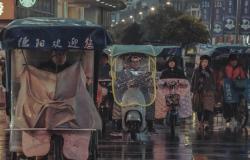
The People's Republic of China views dispatching Chinese talent to international organisations as a key global governance contribution and a means to shape these institutions from within. International posts are competitive to secure, requiring China's concerted effort to place candidates for entry-level professional staff positions. However, less is known about how China is preparing to compete for these international civil service positions. This article examines United Nations (UN) staffing data, as well as Chinese-language academic, policy and media reports to address this research gap and thereby understand better how China is attempting to facilitate an increase in its staffing levels within UN entities. We find China's efforts emphasise preparation of ‘patriots’ who can bring ‘Chinese wisdom’ into the UN, but that efforts to increase staff numbers are still in development. We also note that deploying patriots in the UN civil service is potentially to the detriment of securing posts: patriotism may not translate into bureaucratic skill or expertise and also attracts the attention of other states willing to counter China's staffing efforts. It remains to be seen whether staffing power shifts will be successful and, if so, the extent to which increased representation will benefit China's interests.
Policy Implications
- The UN should consider China's desire to increase its institutional power while addressing other member state concerns that the body does not give preference to any particular state's national interests.
- As Sino-US strategic competition enters the UN, policymakers can expect continued US-led resistance to high levels of Chinese personnel in key UN positions.
- The UN should actively engage in diplomatic efforts to build understanding and cooperation with member states by encouraging dialogue on the importance of diverse and qualified international civil service personnel.
Photo by Lian Rodriguez